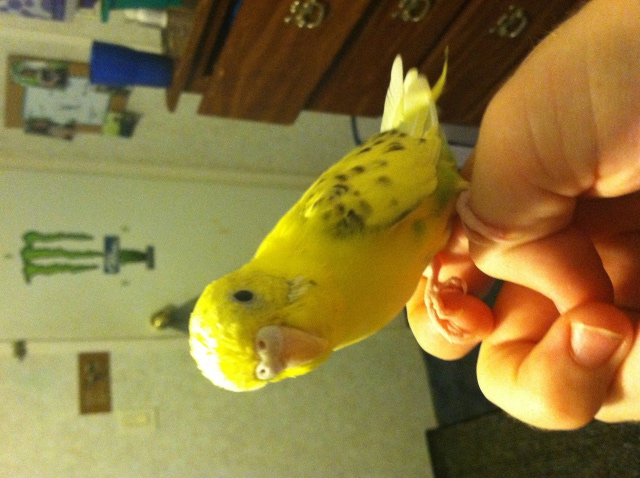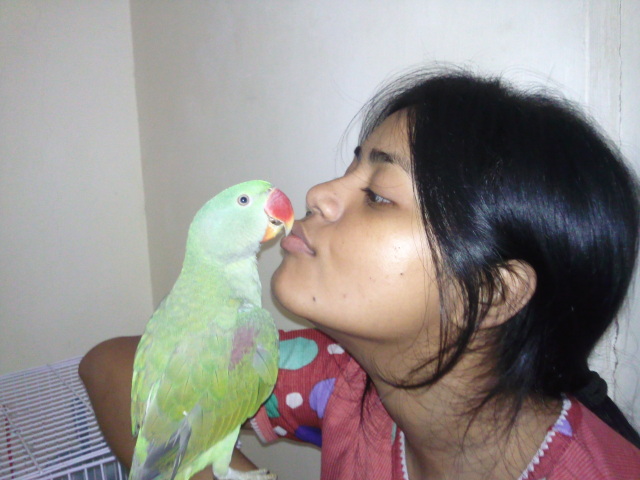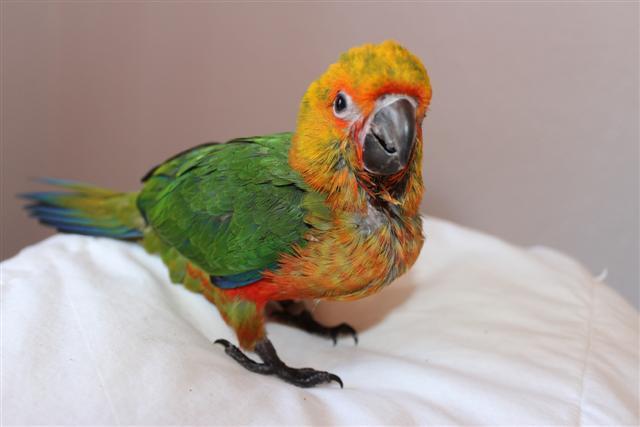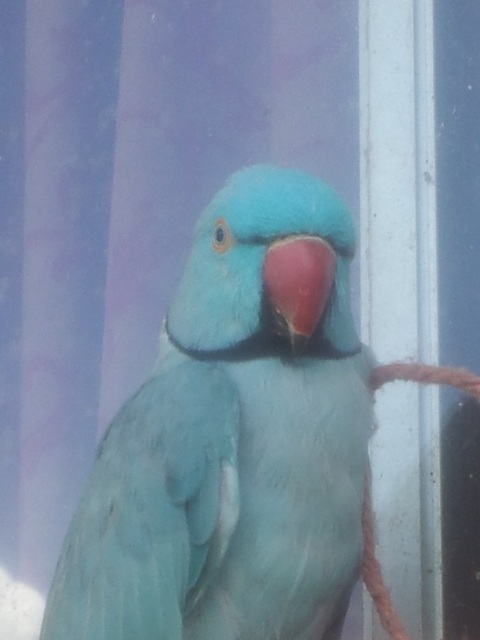QuestionI'm 17 at the moment but have always been interested in parrots especially the larger breeds. I'm just looking to gather information about different breeds so i can choose which would be best for me. I'm not looking to buy now as I'm going to university but i thought it is never to early to start deciding. so once I've finished university there will be more thought about it. what would your opinion be on a first parrot being a macaw, can they be easily introduced to other parrots thus leaving the opportunity to add to this number. i understand it is a life time commitment and i am very passionate about parrots. Any advice and information is welcome.
AnswerHaha, I was 17 when I got my Cockatoo! I wish I had done more research and such before getting mine, but I wouldn't trade her for the world! It IS never too early to research and so many people jump in too quickly and about 99% of the time, it doesn't work out. I was just lucky enough to be in that 1%.
First of all, do you want kids? If you do, you're going to either have to wait until your kids are old enough to respect birds to get one, or you'll have to get a bird LONG before you have kids because the bird takes a long time to settle into a new house, even if it's a baby, and that can be problematic if you have small children because children don't understand that even though the bird is cute and cuddly, it WILL bite and it WILL hurt, so they don't pay attention to the warning signs of a bird in a bad mood.
To tell the truth, the absolute best way to find the perfect breed of bird is to work at a rescue center. There is no better way to learn about bird behavior and the little quirks because these birds usually have been in bad situations, so the quirks are amplified. After working there, you will know not only how to train birds and recognize warning signs, you will know if you can REALLY handle the screaming from a macaw, the dust from a 'Too, or the constant chatter from a conure. Another great thing about working at a rescue center is that you may fall in love with one of the birds and once you are done with school, you will have a wonderful pet all ready to go for you and there will be no akward, irritating transition period.
Macaws are great birds BUT (there's always a "but") their personalities aren't in the grey area-you will either get a sweet, loving one, or you will get a holy terror. Yes, the mean ones can learn to love you, but they will not be sociable, so you really have to choose wisely. Remember, a baby bird does NOT guarantee that it will be nice and love you when it grows up. Macaws usually will get along with other birds, but you have to be VERY VERY careful and know your bird very well because if they decide they don't like your new pet, they will attack and they can do serious damage.
You can do all the research you want, talk to all the people who own macaws, but nobody can describe what its like to really own one. What you may want to do is babysit or foster a macaw. If you are screaming and crying by the end of the first day, congratulations, you're just like the rest of us bird owners! Now at the end of the first WEEK if you're just screaming and crying, that's progress and you can probably handle one. Now at the end of week two or three if you are truely cut out for this, you will come home to chewed up furniture, stained carpet, and a bird who has covered himself in dirt because he was digging in your potted plants and he needs a bath and you will think "AHHHH THAT WAS MY GREAT-GREAT GRANDMAS! I DON'T HAVE THE MONEY TO GET NEW CARPET!!!!!! STUPID BIRD!!!!" take a deep breath and say to him "well, let's get you all cleaned up!"
Macaws usually aren't for the first-timers but if you get some experience at a shelter or fostering a bird it should be no problem for you. For a macaw-like personality, I would try to see if you can foster a conure or senegal becasue both can be loud, have mood swings, but have great pet potential.

 Indian Ringneck Health Issue
QuestionI have an Indian Ringneck who had been neglecte
Indian Ringneck Health Issue
QuestionI have an Indian Ringneck who had been neglecte
 Parakeet gender
Question
Parakeet
Hi, I looked for an expert und
Parakeet gender
Question
Parakeet
Hi, I looked for an expert und
 can i give my parrot chole(chana) called in hindi
Question
my little chaddi alexa
dear sir,
can give chan
can i give my parrot chole(chana) called in hindi
Question
my little chaddi alexa
dear sir,
can give chan
 Jenday Conure Weaning?
Question
Castor the Conure
Hi
I have a 9 week o
Jenday Conure Weaning?
Question
Castor the Conure
Hi
I have a 9 week o
 RE: Indian Ringneck probems
Question
Indy our Ringneck
Thank you for your he
RE: Indian Ringneck probems
Question
Indy our Ringneck
Thank you for your he